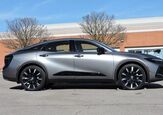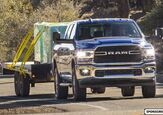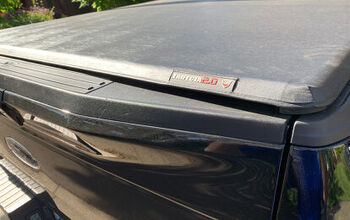Pedestrian Deaths Fell 8.7 Percent in First Half of 2013

The number of pedestrians struck and killed in the United States by automobiles fell by 8.7 percent in the first half of 2013 according to the Governors Highway Safety Association (GHSA).
From 2010 through 2012, pedestrians deaths rose by 15 percent even though overall traffic deaths fell by 3 percent. But the trend seems to be turning, with 1,985 pedestrian deaths registered in the first half of 2013, compared with 2,175 in the same period in 2012.
Not surprisingly, large population states with big urban centers register the most pedestrian deaths, with California, Texas and Florida alone accounting for one-third of all pedestrian deaths in 2012.
SEE ALSO: Volvo Pedestrian Airbag Explained in Video
The GHSA says that distracted walking has not been a major factor, though the 2008 recession may have been a major influence on pedestrian death numbers. “The 2008-2009 economic recession may have driven the recent uptick, as more people were walking to lower their transportation costs,” said Allan Williams, the GHSA report author.
Automakers are also doing their part, with many companies such as Subaru and Volvo rolling out pedestrian safety technology that looks ahead, and applies emergency braking if needed. Volvo takes the concept one step further with its pedestrian airbag, which deploys at the top of the hood to soften the blow.

Stephen covers all of the day-to-day events of the industry as the News Editor at AutoGuide, along with being the AG truck expert. His truck knowledge comes from working long days on the woodlot with pickups and driving straight trucks professionally. When not at his desk, Steve can be found playing his bass or riding his snowmobile or Sea-Doo. Find Stephen on <A title="@Selmer07 on Twitter" href="http://www.twitter.com/selmer07">Twitter</A> and <A title="Stephen on Google+" href="http://plus.google.com/117833131531784822251?rel=author">Google+</A>
More by Stephen Elmer
































Comments
Join the conversation